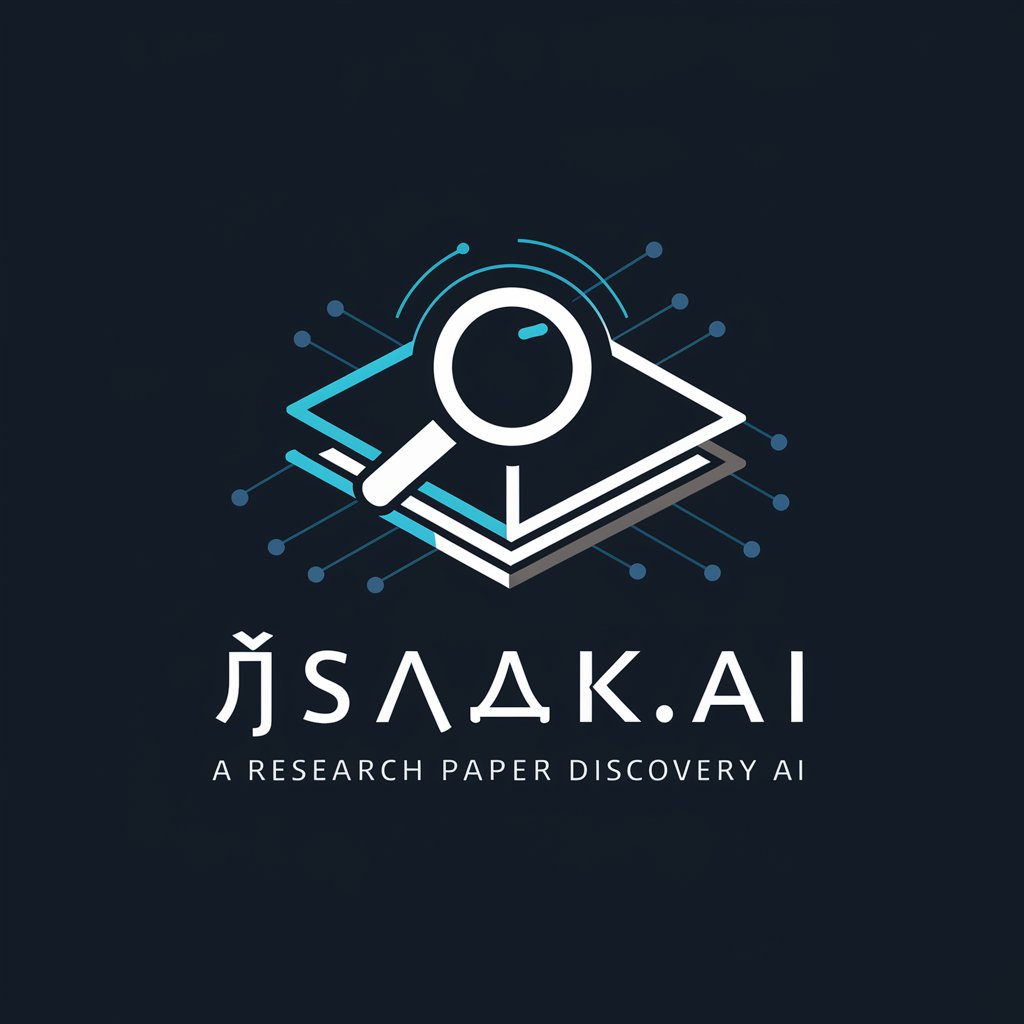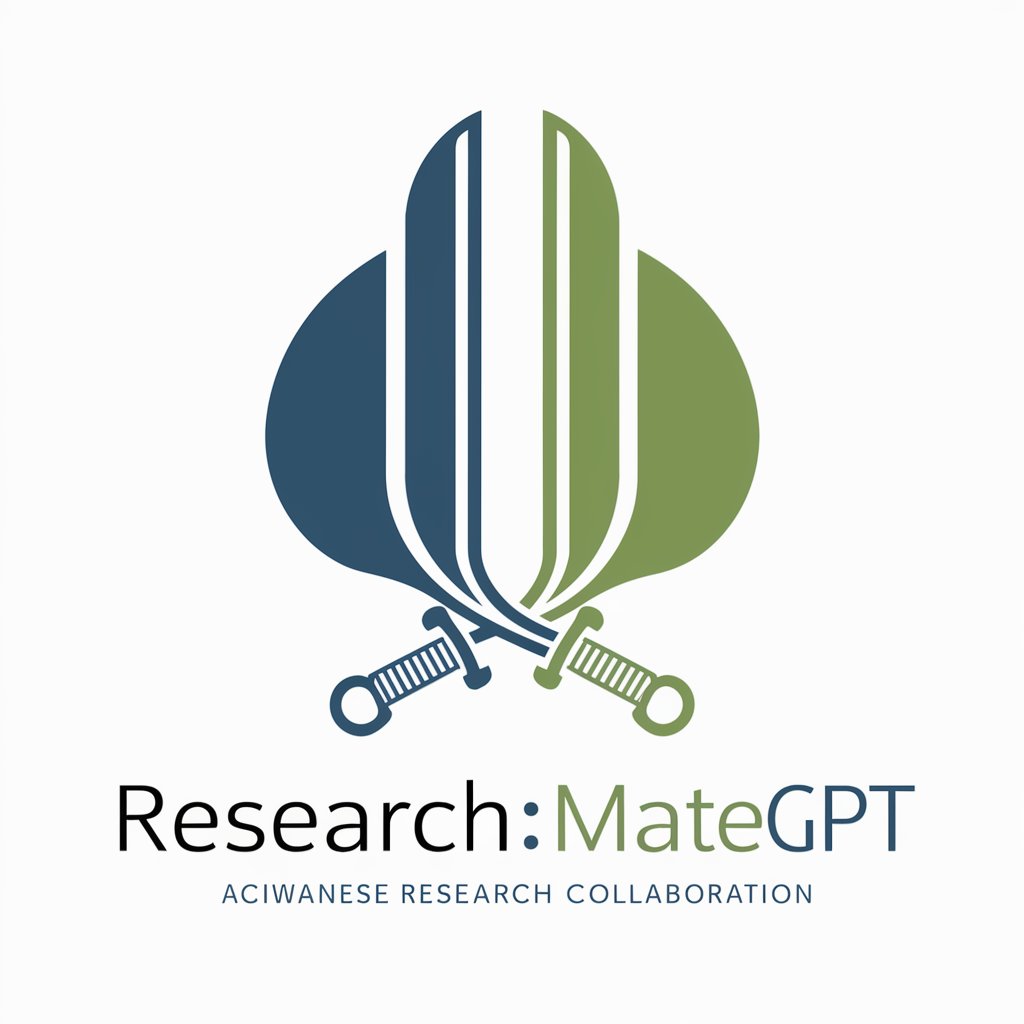11 GPTs for Academic Networking Powered by AI for Free of 2026
AI GPTs for Academic Networking are advanced tools leveraging Generative Pre-trained Transformers technology to foster connections, collaborations, and knowledge sharing within the academic community. These tools are designed to support a wide range of activities relevant to academics, from facilitating research collaboration to enhancing learning and teaching experiences. By understanding natural language, AI GPTs can provide personalized recommendations, generate academic content, and assist in navigating complex databases, making them invaluable for advancing academic networking.
Top 10 GPTs for Academic Networking are: 論文探しAi,Scholarly Insight,Find My Advisor,Scholar Connect,Guía Congreso Experimentalidad,Networking Ninja,ResearchmateGPT,PhD Advisor Search,Intro Wizard,Oceania Agenda
論文探しAi
Empowering research with AI-driven paper discovery.

Scholarly Insight
Empowering Your Academic Journey with AI

Find My Advisor
Connecting Scholars to Advisors, AI-Powered

Scholar Connect
Empowering academic discovery with AI

Guía Congreso Experimentalidad
Navigate congress details with AI efficiency.

Networking Ninja
Craft impactful connections with AI

ResearchmateGPT
Empowering Academic Collaborations with AI

PhD Advisor Search
AI-powered PhD Advisor Discovery

Intro Wizard
Crafting personalized introductions, powered by AI

Oceania Agenda
Discover Oceania's pulse, powered by AI

Global Academic Collaborator
Empowering research with AI-driven innovation.

Distinctive Capabilities of Academic Networking GPTs
AI GPTs for Academic Networking stand out due to their adaptability, supporting a spectrum from simple inquiries to complex research tasks. Key features include sophisticated language understanding for academic discourse, technical support for research activities, enhanced web searching capabilities for scholarly resources, image creation for educational content, and data analysis tools for research insights. These GPTs are distinguished by their ability to understand and generate academic-level content, making them a powerful ally in the realm of academic networking.
Who Can Benefit from Academic Networking GPTs
These tools are designed for a broad audience within the academic sector, including students, researchers, educators, and academic institutions. They are accessible to individuals without programming knowledge, offering user-friendly interfaces for navigating academic resources, while also providing advanced customization options for developers and tech-savvy users in the academic community. This makes AI GPTs versatile tools for enhancing academic networking and collaboration.
Try Our other AI GPTs tools for Free
Publication Strategy
Discover how AI GPTs for Publication Strategy can revolutionize your content creation, distribution, and optimization processes with cutting-edge AI technology.
Cloud Solutions
Explore how AI GPTs revolutionize cloud solutions with intelligent, adaptable tools designed to enhance cloud computing, making it more efficient, secure, and user-friendly.
Influencer Strategy
Explore AI GPTs for Influencer Strategy: Tailored AI tools designed to revolutionize influencer marketing with data-driven insights and personalized recommendations.
Meeting Coordination
Discover how AI GPTs for Meeting Coordination revolutionize meeting planning with automation, natural language processing, and seamless integration, streamlining the way teams collaborate.
Task Reminder
Explore AI GPTs for Task Reminder: smart tools designed to boost your productivity by providing personalized, efficient task reminders and management solutions.
Biology Education
Discover how AI GPTs for Biology Education are transforming learning and teaching in biology with personalized, interactive experiences and cutting-edge content generation.
Expanding Horizons with GPTs in Academia
AI GPTs for Academic Networking are transforming how academic professionals, educators, and students interact, collaborate, and share knowledge. With user-friendly interfaces, these tools can seamlessly integrate into existing academic systems, enhancing the efficiency and effectiveness of academic networking. Their adaptability across different academic sectors showcases the potential of AI in creating more connected and innovative educational environments.
Frequently Asked Questions
What exactly are AI GPTs for Academic Networking?
AI GPTs for Academic Networking are intelligent tools designed to support and enhance networking and collaboration within the academic community by leveraging natural language processing and machine learning technologies.
How can these tools enhance academic research?
They facilitate research by offering advanced search capabilities, generating literature reviews, summarizing research findings, and identifying potential collaborators.
Are these tools suitable for students?
Absolutely, students can benefit from personalized learning resources, academic writing assistance, and study group matching features.
Can educators integrate these tools into their teaching?
Yes, educators can use them for curriculum development, creating interactive learning materials, and automating administrative tasks.
How do AI GPTs adapt to different academic fields?
They are trained on a diverse range of academic literature, allowing them to understand and generate content across various disciplines.
Is programming knowledge required to use these tools?
No, they are designed to be accessible to users without coding skills, though programming knowledge can unlock additional customization options.
Can these tools be integrated with existing academic systems?
Yes, many AI GPTs offer integration capabilities with existing educational platforms and databases to streamline academic workflows.
What makes these tools stand out in academic networking?
Their ability to understand and process academic language, coupled with features tailored to support research, teaching, and learning activities, makes them uniquely valuable for academic networking.